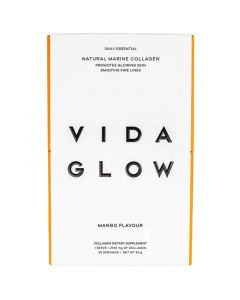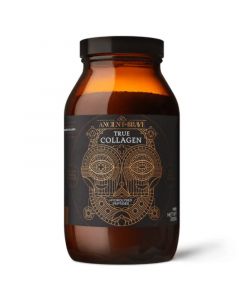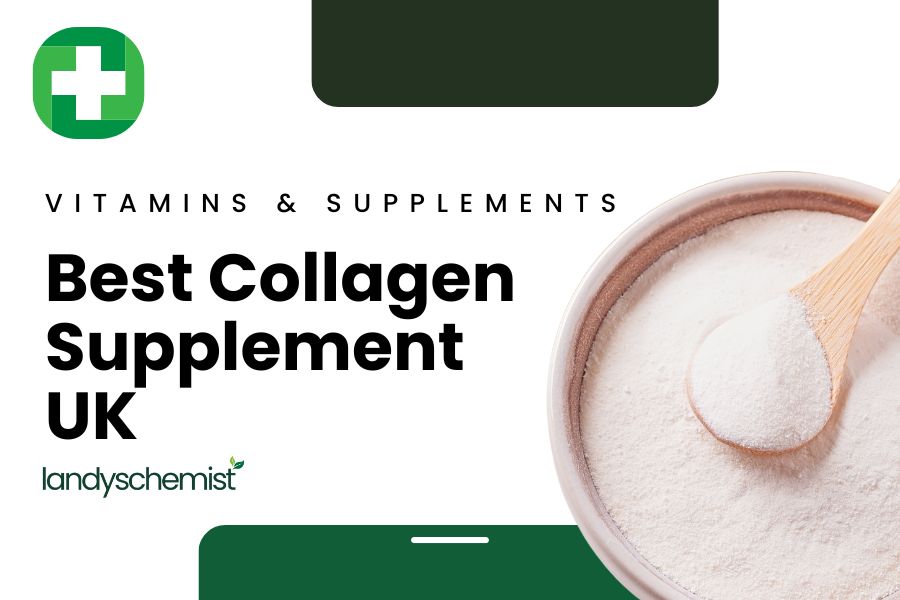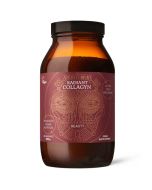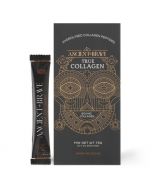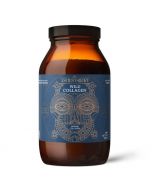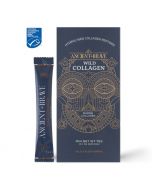
Best Collagen Supplement for Sagging Skin
As we age, maintaining skin elasticity and firmness becomes more challenging. Sagging skin, fine lines, and wrinkles are common signs of ageing that many seek to combat. One effective way to promote skin health is through collagen supplements.

What is Collagen?
Collagen is the most abundant protein in the body, crucial for maintaining the skin's structure, elasticity, and firmness. It acts as a building block for skin cells, helping to keep the skin looking youthful and smooth. As we age, collagen production naturally declines, which can result in sagging skin, wrinkles, and other visible signs of ageing.
Why is Collagen Good for Your Skin Health?
Collagen plays a vital role in supporting skin structure by providing essential elasticity, firmness, and hydration. As collagen levels decrease with age, the skin loses its elasticity and firmness, leading to sagging and wrinkles. For women, menopause causes a more dramatic decline in collagen production. Environmental factors, such as UV exposure and pollution, can further accelerate this decline.
Collagen supplements help to stimulate the skin’s natural repair processes, improving skin density, reducing wrinkles, and enhancing overall skin texture. It also supports other proteins like elastin and keratin, which contribute to stronger, more resilient skin.
Read more: Everything you need to know about collagen (the complete guide)
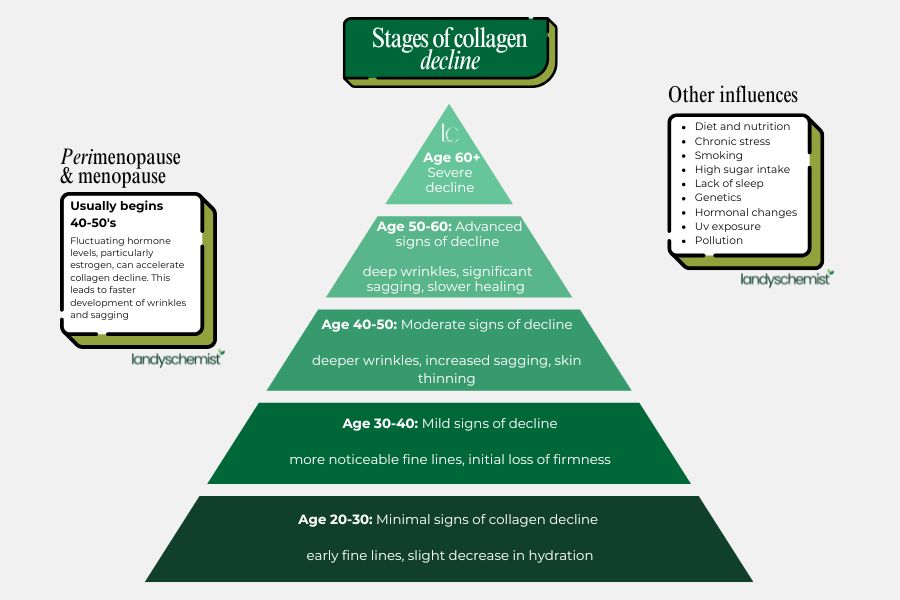
How Do Collagen Supplements Work?
Collagen supplements contain hydrolysed collagen, also known as collagen peptides. This form of collagen is broken down into smaller molecules, making it easier for the body to absorb. Once ingested, these peptides travel through the bloodstream and stimulate the skin cells, encouraging them to produce more collagen.
Choosing the right types of Collagen for skin health
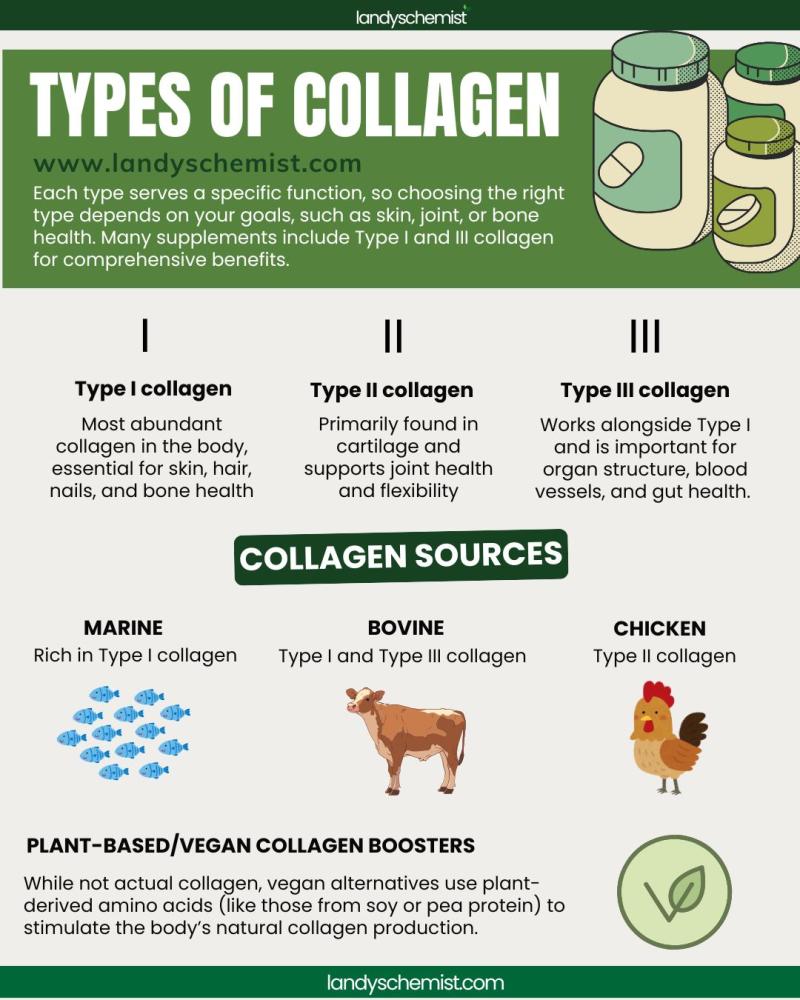
When selecting a collagen supplement, it's essential to understand the different types of collagen and how they affect skin health:
- Type I Collagen: This is the most abundant type of collagen in the skin, hair, nails, and bones. Type I collagen supplements are highly effective in improving skin elasticity and reducing wrinkles.
- Type II Collagen: Primarily found in cartilage, this type of collagen is more beneficial for joint health than skin.
- Type III Collagen: Often found alongside Type I collagen, Type III is also present in the skin and organs. It helps improve skin elasticity and firmness.
For sagging skin, collagen supplements containing Type I and Type III collagen are generally the most effective. Marine collagen, which is derived from fish, is particularly rich in Type I collagen and is known for its superior absorption and effectiveness.
Best Collagen Supplements for Sagging Skin
When looking for the best collagen supplement for sagging skin, consider the following options:
Marine Collagen Supplements: Sourced from fish, marine collagen is rich in Type I collagen, which is highly beneficial for skin health. It's known for its high absorption rate, making it effective for improving skin elasticity and reducing wrinkles. Marine collagen is also considered environmentally friendly and sustainable.
Bovine Collagen Supplements: Derived from cows, bovine collagen contains both Type I and Type III collagen. It's an excellent option for those looking to improve skin elasticity and overall skin health. Bovine collagen is often more affordable than marine collagen and is widely available.
Benefits of Collagen for the skin
- Enhances Skin Elasticity: Collagen supplements can help restore skin's elasticity, making it appear firmer and more toned. This is particularly beneficial for sagging skin and areas prone to wrinkles.
- Reduces Wrinkles and Fine Lines: By boosting collagen production, these supplements can help to plump the skin, reducing fine lines and wrinkles.
- Improves Skin Hydration: Collagen helps retain moisture within the skin, enhancing its hydration and plumpness. This is crucial for maintaining a healthy, dewy complexion.
- Supports Skin Repair and Regeneration: Collagen supplements can accelerate the skin’s natural repair processes, aiding in the healing of damaged skin and the regeneration of new skin cells.
- Boosts Skin Density: Increasing collagen levels can improve skin thickness, making it less susceptible to damage and thinning associated with ageing.
- May minimise Pore Size: With improved skin elasticity and hydration, collagen may help to reduce the appearance of enlarged pores, resulting in a more refined skin texture.
How to Maximise the Benefits of Collagen Supplements
To get the most out of collagen supplements, consider the timing and nutrient combinations:
Timing of Intake
For best absorption, taking collagen supplements on an empty stomach could be more effective as collagen is absorbed best in acidic environments. This allows the body to process collagen peptides more efficiently. Taking collagen at night may also help to improve sleep and repair.
Combine collagen with other nutrients:
You can enhance collagen’s effectiveness by combining it with other skin-supporting nutrients:
- Vitamin C: Helps in collagen production and stabilisation, improving skin firmness.
- Hyaluronic Acid: Boosts skin hydration, complementing collagen’s firming effects.
- Biotin: Supports skin, hair, and nail health, enhancing overall skin texture.
- Antioxidants: Protects collagen from damage and supports skin resilience.
How much collagen should you take for your skin?
For improving skin health, a daily intake of 5 to 10 grams of collagen is suggested. This amount can help boost skin elasticity, hydration, and reduce the appearance of wrinkles and saggy skin.
Summary
- Collagen boosts skin elasticity and firmness, helping reduce sagging and wrinkles as we age.
- Type I and Type III collagen are best for improving skin health, with marine collagen collagen having the best absorption.
- Maximise collagen benefits by taking it with Vitamin C and choosing quality supplements.
FAQ’s
What are the best types of collagen for improving sagging skin?
For sagging skin, Type I and Type III collagen are most effective. Type I is abundant in the skin and helps improve elasticity and firmness, while Type III works alongside Type I to enhance skin structure.
How long does it take to see results from collagen supplements?
Most people start noticing improvements in skin hydration and texture within 4 to 6 weeks of regular use. However, visible results for sagging skin and wrinkles may take 8 to 12 weeks, depending on individual factors such as age and skin condition.
Can I take collagen supplements if I’m allergic to fish or beef?
Yes, if you have allergies to fish or beef, you should avoid marine or bovine collagen. Instead, opt for collagen derived from chicken or a plant-based alternative specifically formulated to support skin health.
Are there any side effects of taking collagen supplements?
Collagen supplements are generally safe for most people. However, some may experience mild digestive discomfort, such as bloating or a feeling of fullness. Always consult with a healthcare professional if you have any concerns or underlying health conditions.
Can collagen supplements help with cellulite?
Yes, collagen supplements may help reduce the appearance of cellulite by improving skin elasticity and thickness, which can help smooth the skin's surface.
Is it better to take collagen supplements as a powder or a pill?
Both forms are effective, but powders allow for easier absorption and can be mixed into various foods and drinks. Pills offer convenience and are easier to carry, making them suitable for on-the-go use.
Can I use topical collagen creams instead of supplements?
Topical collagen creams can help moisturise and temporarily firm the skin's surface, but they don't penetrate deeply enough to affect collagen production in the deeper skin layers. Supplements work from within, stimulating the body’s natural collagen production.
Does diet affect collagen levels in the skin?
Yes, a balanced diet rich in protein, Vitamin C, and other nutrients can support natural collagen production. Foods like bone broth, leafy greens, berries, and nuts are particularly beneficial.
Are collagen supplements vegan-friendly?
Most collagen supplements are derived from animal sources. However, there are plant-based collagen alternatives made from amino acids, nutrients, and bacteria and yeast that can help promote collagen production.
Sources:
- https://www.ncbi.nlm.nih.gov/pmc/articles/PMC9912297/
- https://www.ncbi.nlm.nih.gov/pmc/articles/PMC8824545/
- https://www.ncbi.nlm.nih.gov/pmc/articles/PMC6835901/
- https://www.medicalnewstoday.com/articles/thin-skin
- https://www.sciencedirect.com/science/article/abs/pii/S0308814607003858
- https://pubmed.ncbi.nlm.nih.gov/37874350/

